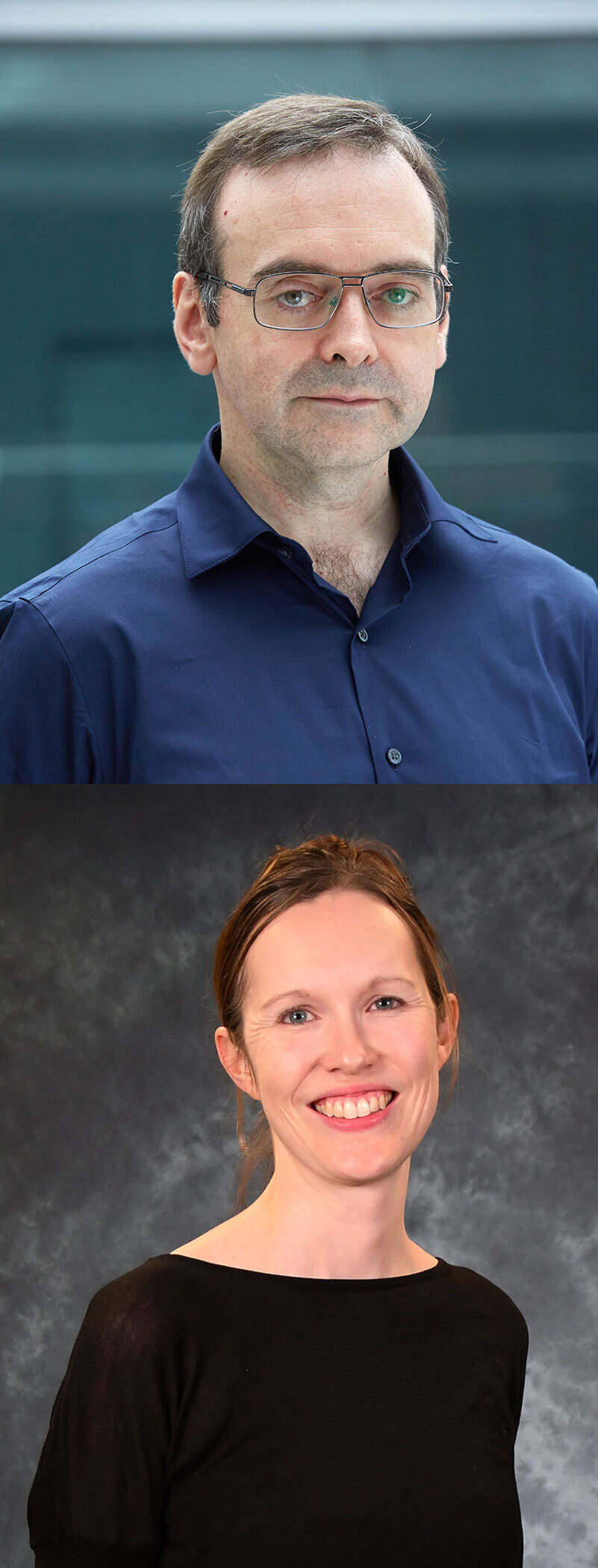UK funders invest £4.25 million into new eating disorders research
More than £4 million in new eating disorders research funding has been announced today, thanks to an investment by UK funders including the Medical Research Foundation.
Eating disorders are thought to impact around 1.25 million people in the UK, although this number is likely to be significantly higher following the COVID-19 pandemic. Just last week, research published in The Lancet Child & Adolescent Health reported a sharp rise in eating disorder diagnoses in the UK, specifically among teenage girls in the first two years of the pandemic.
Despite the devastating impact of eating disorders, our understanding of what drives them to develop is still limited, and research funding is scarce.
This new joint funding commitment from the Medical Research Foundation, the Medical Research Council, the Economic and Social Research Council, the Arts and Humanities Research Council and the National Institute for Health and Care Research, aims to address the ‘vicious cycle of underfunding’ highlighted in a 2021 report - compiled by Beat - on behalf of the All-Party Parliamentary Group on Eating Disorders.
The newly funded projects, led by researchers from King’s College London, UCL, the University of Birmingham, and the University of Edinburgh, will enhance knowledge and understanding of the biological, psychological and social causes of eating disorders, to help improve treatments and prevention strategies. They will also increase collaboration between scientists in the field, as well as involving researchers who usually focus on other conditions.
All the funded projects have shown a strong commitment to involving people with lived experience of eating disorders, both in the development and implementation stages of the research.

Eating Disorders Clinical Research Network - Professor Gerome Breen and Dr Karina Allen, King's College London
UK eating disorder services are facing unprecedented demand, with effective care and treatment hampered by inadequate resources, fragmented services and variable care pathways. There is a critical need to develop better care pathways and treatments, to improve outcomes for people with eating disorders.
Professor Gerome Breen and Dr Karina Allen will work with the eating disorders research teams at King’s College London’s Institute of Psychiatry, Psychology & Neuroscience, and other centres nationally, to establish a UK-wide NHS research network spanning child and adult eating disorder services.
The project aims to bring together child, adult, inpatient, and outpatient NHS eating disorder services to facilitate novel research collaborations. Research data will be open to all researchers, and a collaborative network will aid the development of future clinical trials.
Professor Breen said: “We hope this project will enable a step change in how eating disorders research is carried out. Through the clinical research network and its database, it will be possible to consider treatment outcomes across services, helping to identify why some treatments may work better than others.”

The environment and eating disorders: developing novel measures and hypotheses through inter-disciplinary collaborations - Dr Francesca Solmi, UCL
Around six per cent of women and two per cent of men experience anorexia nervosa, bulimia nervosa, binge eating disorder, or other specified feeding and eating disorders. However, researchers still know little about who has eating disorders in the population and what causes these conditions.
To improve the data available on eating disorders in the general population, the researchers will conduct studies using the Age of Wonder Cohort, a large study of 30,000 adolescents. They will also explore the role of shifting societal risk factors, and in particular which aspects of urban environments (e.g. green spaces, deprivation, and food environments), sleep problems, and loneliness could contribute to the development of eating disorders.
Finally, the impact of social media and schools will be explored, to see whether measures can be put in place to reduce the risk of young people developing eating disorders.
Dr Solmi said: “We are excited to receive this grant from the Foundation, which will drive groundbreaking research on eating disorders. Through the collaborations supported by this funding, we aim to unlock new data resources and research hypotheses, so that we can gain a better understanding of eating disorders and design effective preventative interventions.”

Enhancing eating disorder research networks: the Eating Disorders and Autism Collaborative (EDAC) - Dr Karri Gillespie-Smith and Dr Fiona Duffy, University of Edinburgh
There is a pressing need for new research focusing on eating disorders in Autistic people, involving wider and more diverse collaborations. We need to better understand what it’s like to be an Autistic person with an eating disorder, what makes some Autistic people more vulnerable to eating disorders than others, the mechanisms that underpin this, and potential targets for intervention.
Thanks to this funding, the researchers will host a new UK-wide interdisciplinary network at the University of Edinburgh, which aims to facilitate collaborations with people with lived experience, academia (including peer researchers), the third sector, policy makers and clinicians. The priorities for this network will be set and steered by Autistic individuals with experience of disordered eating. The researchers aim to increase research capacity and career development by supporting early career and peer researchers, elevating the next generation of eating disorder researchers.
Dr Karri Gillespie-Smith said: “We think there is a need for novel and innovative research to better understand eating disorders in Autistic people. Thanks to funding from the Foundation, we will develop a new network of researchers across the UK, specifically encouraging early career and peer researchers, who will carry out research prioritised and set by Autistic people with eating disorders.”
An anthropological approach to eating disorders: developing a socio-cultural strategy for research, treatment and prevention - Dr Anna Lavis, University of Birmingham
The All-Party Parliamentary Group on Eating Disorders recently highlighted significant gaps in knowledge about the experiences and needs of people with eating disorders. Addressing them requires two key things: firstly, research priorities need to be set, and research undertaken, in collaboration with people with lived experience. Secondly, there is a need to understand how socio-cultural contexts and social and mental health inequalities impact experiences, access to services and outcomes.
This project will draw together an anthropological approach, with co-production, to undertake a range of capacity building, networking and research activities.
Dr Lavis said: “Eating disorders devastate lives. But for too long huge gaps have persisted in our understanding of the experiences and needs of a wide range of people affected, and of how these are shaped by social and health inequalities.”
“These knowledge gaps create barriers to care and disparities in outcomes, as well as fundamentally undermining our ability to develop effective strategies to spare future generations. That’s why this funding is so vitally important. It will allow us to work with people with eating disorders to undertake research that makes a real and sustainable difference now and into the future.”

Dr Angela Hind, Chief Executive of the Medical Research Foundation, said: “Eating disorders have grown in scale and severity during the pandemic, yet research investment continues to languish behind the already limited funding available for other mental health conditions.”
“We’re thrilled to be co-funding these new collaborations, which are part of the Medical Research Foundation’s long-term commitment to tackling eating disorders through research. We hope this new joint investment breaks the cycle of underfunding in eating disorders research, and most importantly, that discoveries from these collaborations help to improve the lives of people with eating disorders.”